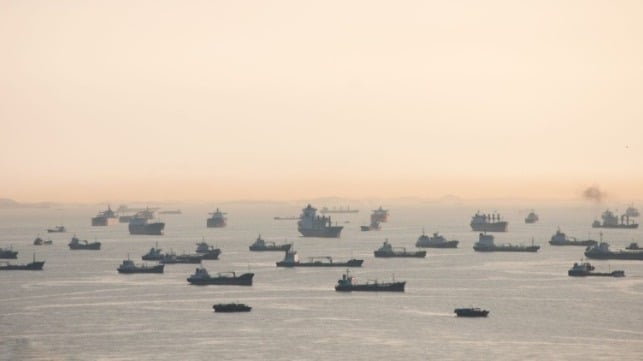Panama Calls for IMO to Mediate Crew Change for Ships Caught off China

Nine months into the standoff between China and Australia over the importation of coal, pressure continues to mount to find a solution at least for the seafarers stuck at sea. The Republic of Panama, as the flag state for many of the stranded ships, is calling on the International Maritime Organization to get involved to mediate the dispute.
While there was a little progress in the situation permitting a few crew changes, many others continue to find themselves waiting on their ships off China’s ports. The Panama Maritime Authority estimates that as many as 74 ships and more than 1,500 crew members of various nationalities are confined to their vessels in the waters of the People's Republic of China. These vessels are fully loaded with imported coal from Australia that China has refused to accept due to a political dispute between the two countries. Chinese authorities deny those claims citing local port controls as part of the effort to control COVID-19.
In a letter to Kitack Lim, the Secretary-General of the International Maritime Organization, Panama requests that the IMO get involved to mediate and assist seafarers and shipowners caught in this situation. Minister of Maritime Affairs, Arch. Noriel Araúz writes that the IMO's diplomatic powers "can help us expose before the competent authorities that due to a commercial disagreement, the human rights and well-being of the crews of these ships are being ignored."
Panama highlights that in a commercial dispute such as this situation that “crews should not be involved, nor should their disembarkation be prevented, especially if their employment contract has expired.” They are highlighting the IMO’s resolutions in 2020 on facilitating crew changes along with the Maritime Labor Convention that prohibits denying the right of repatriation to any seafarer, due to the financial circumstances of the shipowners or the incapacity or unwillingness to replace a seafarer.
Minister Araúz also writes that it “does not depend on the flag states whether or not to allow the disembarkation of the crew when the ship is in jurisdictional waters or ports of another country.... our main objective is that the well-being of the seafarers be taken into consideration. As a Flag State, we trust that, when this note is in the hands of the IMO, we can find a solution to this crisis.”
It is not the first time that the IMO has been called on to intervene in this situation. Last fall, the National Union of Seafarers of India appealed for 10,000 email messages to be sent to the IMO and Chinese authorities to highlight the humanitarian crisis. At the time, NUSI was launching a campaign to repatriate Indian sailors who had been waiting on two vessels off China since June and August. With the intervention of the Indian government and repeated diplomatic appeals, crew changes were completed on those ships at the end of 2020. Italy also succeeded with its diplomatic mission to bring home a few Italian citizens from other ships caught in the dispute.

that matters most
Get the latest maritime news delivered to your inbox daily.
“So long as the trade dispute between the Australian and Chinese governments remains unresolved, bulkers will continue to languish at Chinese anchorages,” says Nick Austin, a partner in the international law firm Reed Smith’s Transportation Industry Group. He also points to the potential for trade claims to emerge as the situation drags on. “Alongside the regrettable human cost of blocked crew changes, delays of this length could give rise to a range of disputes under the fixtures and in relation to cargo. Not the least of which will be whether owners try to recover additional sums on top of demurrage under their charterparties where the delay causes other types of loss beyond those tied to the vessel's earning potential. Whether claims of this nature become widespread (and what precisely they cover) remains to be seen, but they can only become more likely as the clock continues to tick for vessels waiting off China.”
Minister Araúz reaffirmed the commitment of the Panama Maritime Authority to work jointly with the IMO. “Our mission in this regard is to find a reasonable and positive solution for the crew of these ships to return home.”
